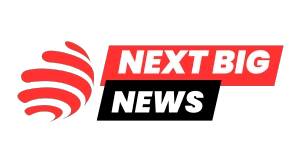A peace agreement brokered by the White House to stem the bloodshed in the eastern Democratic Republic of Congo (DRC), where a militia allegedly backed by Rwanda occupies vast swaths of land, was signed in Washington D.C. on Friday by officials of the two African nations.
But many remain unconvinced that the accord – portrayed as a “wonderful treaty” by United States President Donald Trump – can end the complex and long-running conflict, while the militia itself has yet to commit to laying down its weapons.
Trump was upbeat about the prospects for peace when teams from Rwanda and the DRC initialed a draft agreement on June 18, while at the same time suggesting that he would not get credit for his role in ending this or other conflicts.
On June 20, he wrote on Truth Social: “This is a Great Day for Africa and, quite frankly, a Great Day for the World! I won’t get a Nobel Peace Prize for this.”
He added: “I won’t get a Nobel Peace Prize no matter what I do, including Russia/Ukraine, and Israel/Iran, whatever those outcomes may be, but the people know, and that’s all that matters to me!”
Trump touts himself as a “peacemaker” and has expanded his interest in global conflicts to the brutal war in the mineral-rich eastern DRC. His peace deal could also pave the way for America’s economic interests in the region, as it eyes access to the DRC’s critical minerals.
US Secretary of State Marco Rubio presided over the signing of the peace agreement by DRC Foreign Minister Thérèse Kayikwamba Wagner and her Rwandan counterpart Olivier Nduhungirehe on Friday.
“This is an important moment after 30 years of war,” Rubio said before the three officials signed the agreement. “President Trump is a president of peace. He really does want peace. He prioritizes it above all else.”
More than 7,000 people have been killed, and some one million others displaced since January, when the M23 militia waged a fresh offensive against the Congolese army, seizing control of the two largest cities in the country’s east.
There has been increasing reports of summary executions – even of children – in occupied areas, where aid groups say they are also witnessing an epidemic of rape and sexual violence.
The crisis in the eastern DRC, which shares a border with Rwanda and harbors large deposits of minerals critical to the production of electronics, is a fusion of complex issues.
Daniel Kubelwa, a Congolese activist and researcher told CNN that the DRC’s feud with Rwanda is “deeply rooted in colonial-era border disputes, unresolved regional tensions, and the consequences of the 1994 Rwandan genocide.”
In that genocide, hundreds of thousands of Tutsis and moderate Hutus were killed by Hutu militias.
Rwanda criticizes the DRC, which faces problems with militia violence, for integrating a proscribed Hutu militia group into its army to fight against the mainly Tutsi M23.
M23, which first emerged in 2012, is one of the most prominent militias battling for control of the DRC’s mineral wealth. The rebel group also claims to defend the interests of the Tutsis and other Congolese minorities of Rwandan origin.
UN experts and much of the international community believe that Rwanda backs M23 and supports the rebels with troops, leaving the nation on the cusp of war with the DRC over this alleged territorial violation.
The Rwandan government has not acknowledged this claim but insists it protects itself against the Hutu militia operating in the DRC, which it describes as an “existential security threat to Rwanda.”
M23 occupies strategic mining towns in the DRC’s eastern provinces of North and South Kivu.
In a report in December, the UN Group of Experts on the DRC said they found evidence that minerals “were fraudulently exported to Rwanda” from the DRC “and mixed with Rwandan production.”
Rwandan President Paul Kagame drew outrage last year when he admitted in a public address that Rwanda was a transit point for minerals smuggled from the DRC but insisted his country was not stealing from its neighbor.
Washington’s peace accord contains provisions on “territorial integrity and a prohibition of hostilities,” including “disengagement, disarmament, and conditional integration of non-state armed groups,” according to a copy of the document viewed by CNN.
Before hosting the signatories in the Oval Office on Friday afternoon, Trump told reporters that the accord allows the US to get “a lot of the mineral rights from the Congo.”
While the signed peace agreement does not specifically forfeit any mineral rights to the US, the document includes a framework “to expand foreign trade and investment derived from regional critical mineral supply chains,” specifically to “link both countries, in partnership, as appropriate, with the U.S. government and U.S.investors.”
Other points include “facilitation of the return
Content adapted by the team from the original source: https://www.cnn.com/2025/06/27/africa/trump-drc-rwanda-peace-deal-intl

















Leave a comment